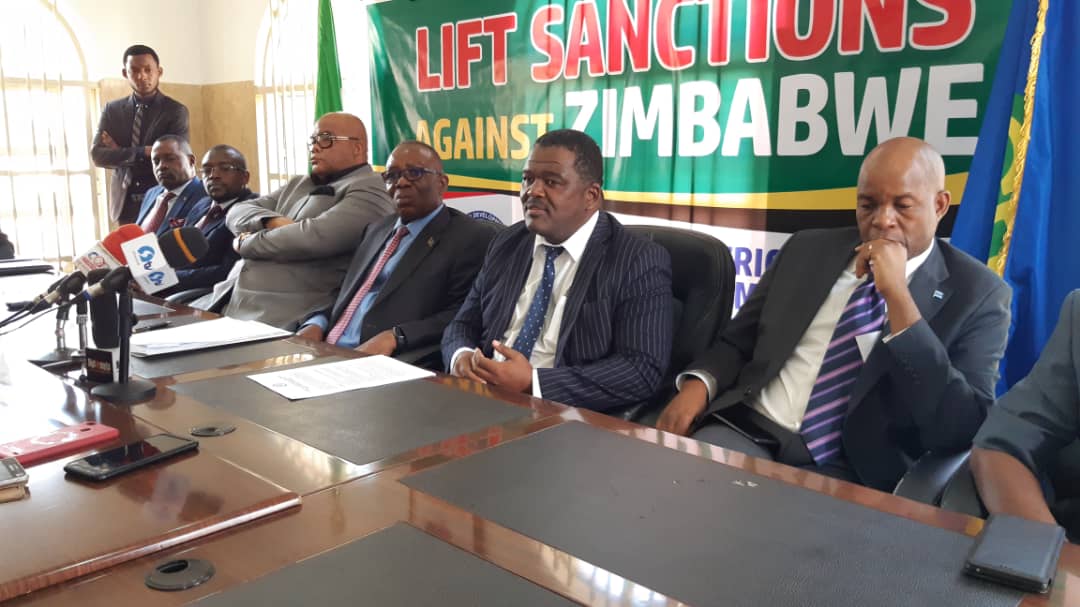SADC demand lifting of EU, US sanctions on Zimbabwe
Southern African body in Abuja on Friday described western sanctions on Zimbabwe as an “out of date and blunt foreign policy tool of economic coercion” which is adversely affecting the lives of ordinary people. This was stated by the Southern African Development Community (SADC) Missions in Nigeria, led by High commissioner of Tanzania, Muhidin Ally […]

Envoys at SADC press conference in Abuja to demand lifting of EU, US sanctions on Zimbabwe. October 24, 2019.
Southern African body in Abuja on Friday described western sanctions on Zimbabwe as an “out of date and blunt foreign policy tool of economic coercion” which is adversely affecting the lives of ordinary people.
This was stated by the Southern African Development Community (SADC) Missions in Nigeria, led by High commissioner of Tanzania, Muhidin Ally Mboweto during a press conference to demand the unconditional lifting of sanctions placed by the US and the European Union, (EU).
The US and EU had placed targeted economic sanctions on Zimbabwe citing lack of progress in democratic and human rights reforms as well as restrictions on press freedoms.
October 25th was set as a date for simultaneous marches across Southern African States to demand the lifting of the sanctions.
Ally said “We cannot remain silent and watch injustice perpetuated on our own. Zimbabweans deserve an opportunity to live dignified lives.”
He added that SADC countries had have to share the burden of the implosion of the Zimbabwean economy “wrought by sanctions for the past two decades”.
The Zimbabwe counsellor and Head of Chancery in Nigeria, Tonderal Ocar Mutuke said state owned enterprises were affected by the targeted sanctions program which he refers to as unjustified.
He said the sanctions has brought about untold suffering to the people of Zimbabwe and has also added a burden on the social services of neighbouring countries due to mass emigration.
Mutuke said these sanctions has affected the government access to International Financing Institutions (IFIs) which are barred from extending financial support.
He added that the country is struggling to attract investors; and they have not been able to retool the agricultural sector which is the mainstay of the economy – and when they produce they cannot sell as the market are closed to them, as such they are not able to earn the much needed foreign exchange.
